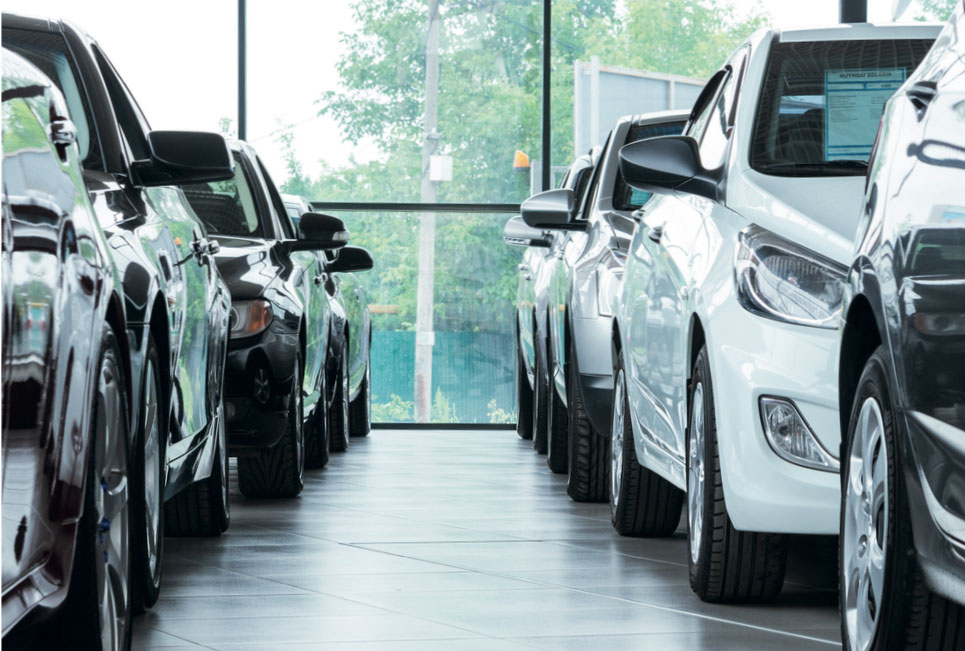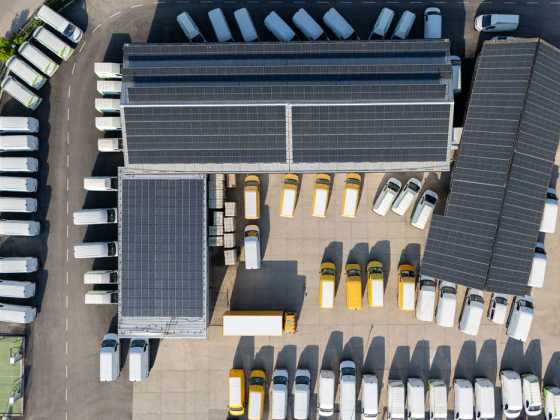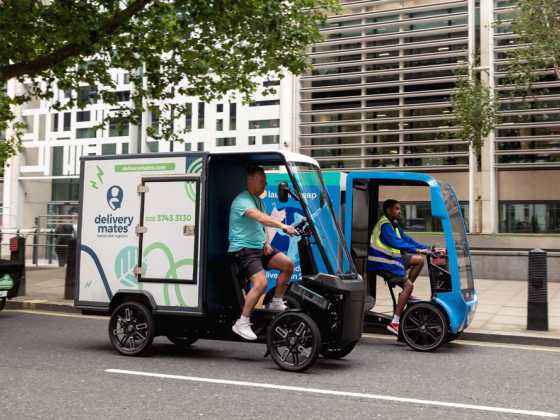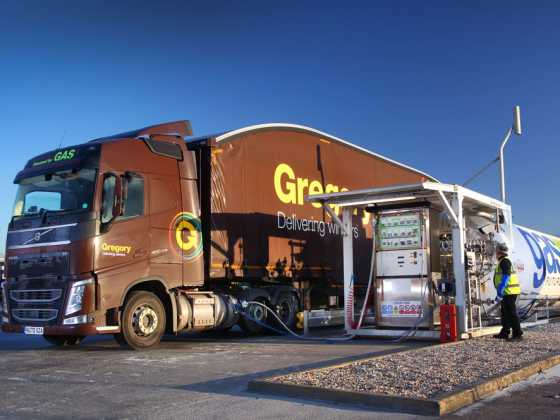Expert Panel: Leasing

Can it pay to think differently about the way we travel? Our expert panelists examine how the new concept of ‘mobility’ is impacting the fleet sector
A new study into how people travel around England was released by the Independent Transport Commission (ITC) at the end of 2016, looking back over the last 20 years until 2014. It gave insight into how travel is changing for individuals and how car is not necessarily king anymore. It found that people were making fewer trips than they did 20 years ago, but those trips were longer, and that young people, especially men under 35, are increasingly abandoning the car. Meanwhile, people over 60, especially women, are driving more than ever.
Rail travel continues to be popular, with the average rail mileage per person rising sharply. This is due to a greater percentage of the population travelling by rail, rather than existing travellers making more or longer journeys.
Interestingly, in London there has been a dramatic fall in car distance travelled per person, down by almost a third in outer London, and by more than half for inner London.
Dr Matthew Niblett, director of the ITC, said: “We are seeing that the historic correlations between incomes, costs and travel are weakening. An inter-generational divide in travel behaviour is growing.
“For young adults, cars are increasingly viewed as utilitarian appliances, rather than aspirational goods. And there are also growing differences in travel patterns between rural and urban areas.”
Focusing on this point of urban areas, Gerry Keaney, BVRLA chief executive cites congestion and air quality issues as pushing forward policies that penalise car usage:
“Traditional models of car use are being eroded in many urban areas, where the growing problems of congestion and air quality are forcing policymakers to introduce measures that are increasingly anti-car.”
He continues: “Elsewhere, a new group of motorists made up largely of a younger generation is embracing a service-based mentality by renting or using shared vehicles, instead of owning or taking individual responsibility for them. This same generation is also comfortable with a digital, smartphone-enabled approach to buying and using mobility services.”
Business travel
While the ITC study focused on personal travel, business travel is also changing. Rather than solely offering a company car, or reimbursing transport costs, some companies are looking at staff travel in a more holistic way to include a mix of travel options – or mobility solutions. This could include corporate car sharing, car pooling, public transport, parking, teleconferencing, accommodation, and so on.
Chris Chandler from Lex Autolease believes that while fleet managers have been juggling pool fleets, daily rental vehicles, grey fleet and company vehicles for some time, “true mobility management has been light on the ground.”
However, he believes that things are changing: “In this industry there is a genuine desire to move to integrated mobility solutions, assessing whether the journey is necessary in the first place, and providing a holistic view of any resultant travel and transport needs. This is from both traditional company cars through to integrated transport systems, parking and accommodation.”
Shaun Sandlier from Arval agrees that modern mobility in corporate travel is still a niche but that the younger generation will be key to driving the change:
“At the moment the impact of new solutions remains niche, and in general our customers are more focused on driving fleet efficiencies through the more traditional model of fleet operation, rather than on wider mobility solutions. However, output from our Corporate Vehicle Observatory predicts a step-change in mobility from 2020.
“Momentum is growing; for example our research earlier this year showed that car sharing could start to gain prominence as younger employees move through the ranks in their companies. 41 per cent of fleet managers believed their youngest generation of employees would easily accept it as an option.”
Shaun also adds that the type of business conducted and the vehicle used also plays a part in whether new mobility methods will be adopted. He says: “Change is less likely in some segments, for example, we are not yet seeing a change in the commercial vehicle arena where vans are often branded and fitted out specifically to carry certain equipment or cargo. In this instance a company vehicle is the practical option for the business.”
The mobility manager
This trend of modern mobility has meant that some companies are looking at merging fleet, travel and expense management into one role – a mobility manager. In April 2015, analysts Frost and Sullivan spoke to more than 450 fleet and travel managers in five European countries about current and future mobility business models. The research found that around one in 20 companies already employs a mobility manager, while 22 per cent believe their fleet and travel management departments could merge. They also foresee that this could lead to organisations paying employees a mobility allowance, rather than providing a company car.
Technology is vital for this change to happen. Connectivity and the smartphone has meant that people can view travel information, compare travel modes, access car club vehicles and order taxis easily.
And the technology infrastructure is due to improve. The government recently launched its National Infrastructure Commission (NIC) – an executive agency responsible for coordinating the UK’s future needs for significant infrastructure. Spending plans include nearly £1 billion to expand digital communication networks, £80 million for smart ticketing in public transport and £100 million for testing self-driving vehicles. This will make it easier to embrace new ways of travelling.
Mobility and fleets
Leasing companies are in a strong position to keep up to date with the evolving trends, and adapt their products accordingly to offer flexibility and choice to customers.
“There is a general trend towards more rental and leasing companies offering wider ‘mobility’ services,” explains BVRLA’s Gerry Keaney. “This can include corporate car sharing, flexible car rental and support for companies that want help with their travel as well as their fleet management. Rental and leasing companies are also rapidly developing their own IT infrastructure and digital platforms.”
Shaun Sadlier from Arval adds: “Leasing companies are evolving by introducing new products supporting the traditional company vehicle, to offer flexibility and choice to customers and their employees. For example we have created a mid-term rental product providing a vehicle lease for any period between one and 24 months.”
Lex Autolease also offers flexible leasing, daily rental solutions and consultancy support, looking at ‘key transport and travel requirements to identify the correct blend and balance of travel methods to optimise travel, including policies to ensure the journey is actually necessary in the first instance,’ explains Chris Chandler.
Looking at travel differently
With all this change, can fleet managers actually benefit from looking at travel differently? Chris Chandler from Lex Autolease believes so, saying that analysis into the sorts of journeys that are done – and approaching them differently – can identify new ways of doing business, minimise cost and reduce effort. He also cites telematics and connectivity as playing an important part: “Telematics can assist in both understanding the underlying business needs, and also identifying where cleaner vehicle technology could be used, including plug in and pure electric vehicles.
“The introduction of connected vehicles will also provide important data to allow fleet operators to maximise efficiency by understanding the travel requirements and hence using new products and initiatives to deliver the most efficient and effective solutions, whether this be the provision of company cars, daily rentals, or looking at newer offerings like Uber or GoMove.”
Shaun Sadlier from Arval also believes that looking deeply into journeys can result in the most cost effective method being selected. He says: “This approach will take into account the type of journey, when it is happening, the distance, and even whether it is necessary. Once the requirement is clear, it will become easier to select the most appropriate and cost-effective method of travel. In many cases, a car will still be the best option.”
Gerry Keaney from BVRLA says: “Fleet operators have years of experience when it comes to managing their corporate travel plans, and this isn’t likely to change – fleet managers will still consider the most cost‑effective and convenient travel options available. However, a user-centric approach towards mobility – rather than simply thinking about a particular journey that needs to be taken – can benefit an organisation.”
New travel trends also lend themselves well to electric and ultra-low emission motoring. Whilst some firms may be reluctant to owning a fleet of electric vehicles, being able to use them on occasion for short trips via car clubs and short term rentals may be appealing.
The future of mobility
As well as new mobility trends, another major way the industry is changing is the advent of self-driving cars. Although fully automated cars are not expected to be in use in the UK for about 10 years, the government is keen to ensure that Britain is at the forefront of developing driverless technology. In early 2016, the government announced a £20 million funding boost for research and development into autonomous vehicles in the UK, with projects ranging from new simulation trials for autonomous pods to developing autonomous shuttles to carry visually-impaired passengers. Milton Keynes has already tested a driverless car on UK streets, with the LUTZ Pathfinder travelling 1.25 miles through pedestrianised areas, coping with walkers and cyclists.
Shaun Sadlier from Arval believes we are moving towards environmentally‑friendly, productivity-enhancing transport. He says: “Autonomous vehicles will have a role to play, and over time could allow employees to work during the commute.
“Our research shows that 43 per cent of UK fleets believe that employees will easily accept using these vehicles. Bearing in mind that virtually no fleet managers have had the chance to examine one of these vehicles yet, more than 40 per cent acceptance is encouraging.”
“A key reason for this is the reduction in risk that the technology brings, and fleet awareness of the potential safety benefits of such vehicles is interesting. In our most recent CVO Barometer, 38 per cent of fleet managers agree that autonomous vehicles could mitigate existing road safety issues.”
Chris Chandler from Lex Autolease looks toward a future of even more connectivity making travel even easier: “In a more connected future we would hope that simplified and joined up ways of selecting/booking/paying for transport services will also be developed. For the mobility manager this will be key in providing a single billing platform and the ability to carefully analyse spend and travel patterns.”
Integrated mobility system
Gerry Keaney from BVRLA agrees, believes that an integrated mobility system driven by technology will be the future. He says: “In its simplest form, this would bring together road, rail and air transport options in one single, intuitive mobile app. Said app would enable users to explore the different travel options, book them and pay for them via their smartphone.”
Expert final thoughts
Shaun Sadlier
"We are moving toward environmentally-friendly, productivity-enhancing transport. Autonomous vehicles will have a role to play, and over time could allow employees to work during the commute. What’s more, it appears that over time, Generation Y employees could influence changes in the standard fleet model. They have a much more flexible attitude to the idea of ownership and rental when it comes to all kinds of goods and services, and they could carry this thinking through into the fleets of the future, making car sharing viable."
Gerry Keaney
"The end goal is for transport to be delivered as an integrated, reactive mobility system driven by technology. In 2017, we believe there will be an explosion in the amount of driver, traffic and public transport information being shared on intelligent mobility platforms. The BVRLA expects that major urban areas including Bristol, Manchester and London will take the lead. We also predict there will be a surge in interest and demand for corporate car sharing and mobility services which will lead to some increasingly innovative partnerships between public and private sector employers, vehicle manufacturers and the rental and leasing industry."
Chris Chandler
"Without doubt the one thing that will remain constant is the need for people to travel, both on business and for pleasure. Most commentators agree we will see an increased move towards urbanisation so in major cities the trend could be for car use not ownership – i.e. car clubs and short term rentals, but personal mobility will still be important. In a more connected future we would hope that simplified and joined up ways of selecting/booking/paying for transport services will also be developed. For the mobility manager this will be key in providing a single billing platform and the ability to carefully analyse spend and travel patterns."






